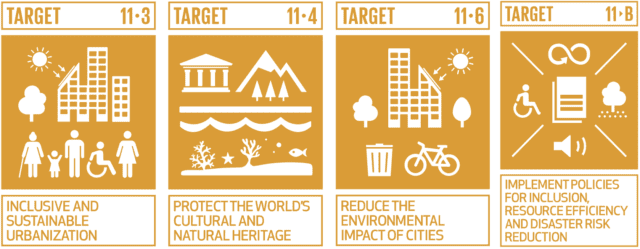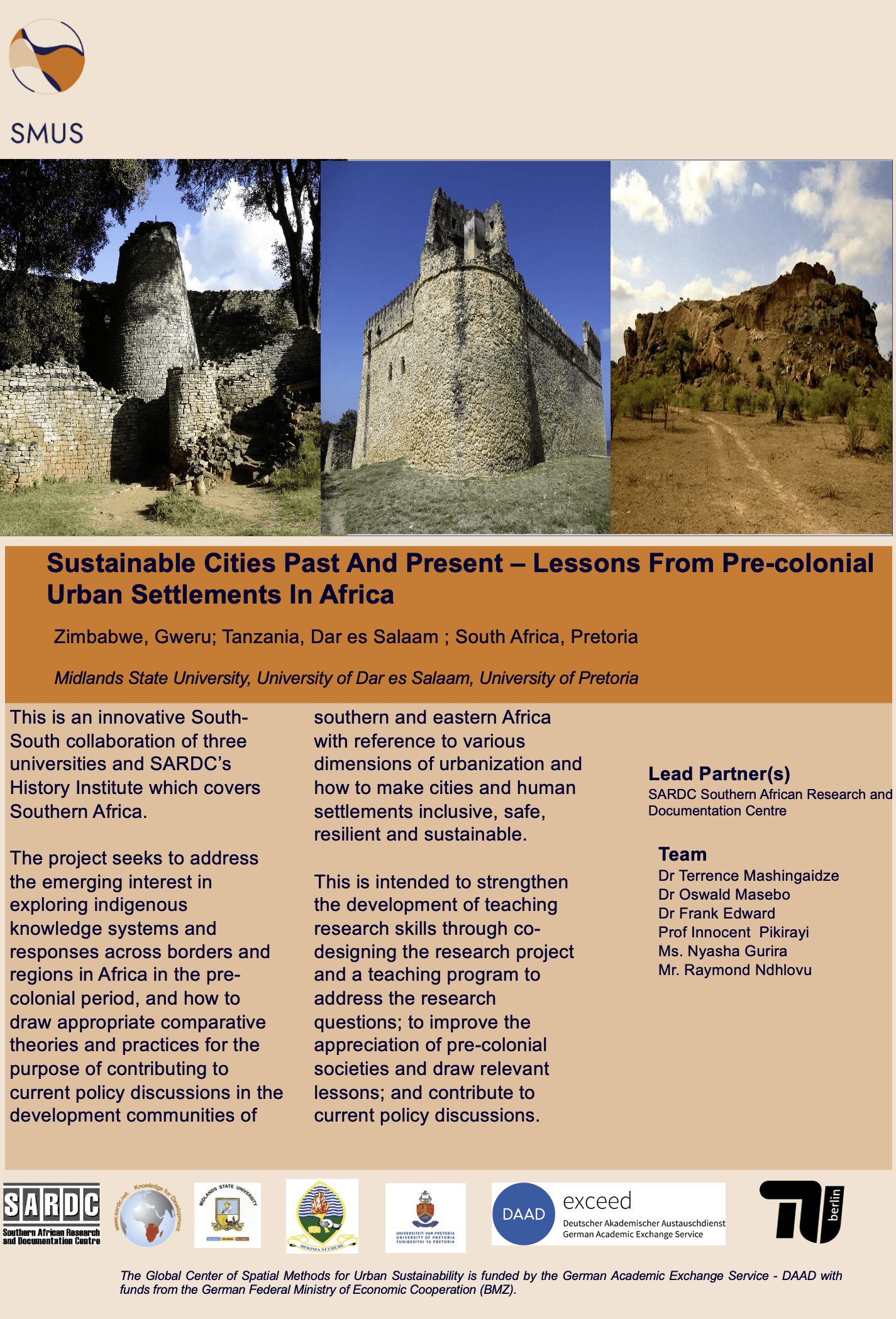Abstract
Gweru, Zimbabwe; Dar es salam, Tanzania; Pretoria, South Africa
This teaching course is an innovative South-South collaboration of three African universities and the Southern African Research and Documentation Centre (SARDC’s) History Institute.
The course addresses the emerging interest in exploring indigenous knowledge systems and responses across African borders and regions in the pre-colonial period and how to draw effective and appropriate comparative theories and practices to contribute towards current policy discussions on urbanisation in southern and eastern Africa.
The course draws primarily on pre-colonial African systems in large urban areas with well-developed physical and social structures, using the case studies of Great Zimbabwe, Mapungubwe (South Africa) and Kilwa (Tanzania), thus incorporating both inland and coastal spaces. These were capital cities with extensive functioning states with economies based on climate-appropiate agriculture, extensive livestock management, mining, an industrial base for smelting and value addition, agro-processing, and cotton production and weaving that traded at local, regional and global levels.
The teaching course will strengthen the teaching and research skills at three SMUS partner Universities as the team collaborates in co-designing the research project and a teaching program.
The course will also allow the students at the three universities to improve their appreciation of pre-colonial societies and deepen their knowledge and understanding of the sustainability of these pre-colonial settlements and how to best draw relevant lessons.
Research methods
- Archaeology research methods
- Ethnography
- Surveys
- Mapping
- Focussed group discussions
SDG #11 Target

Teaching Team











